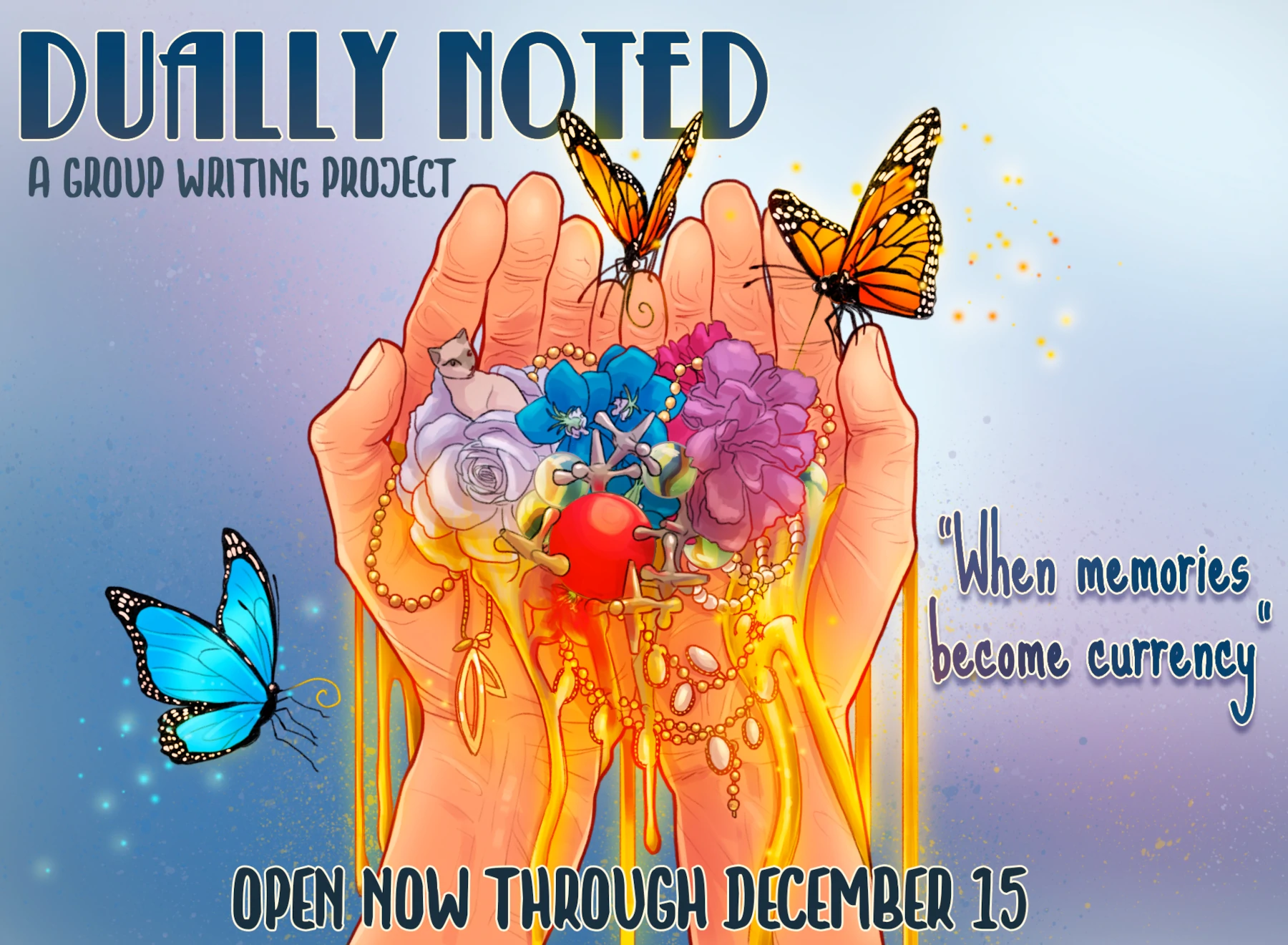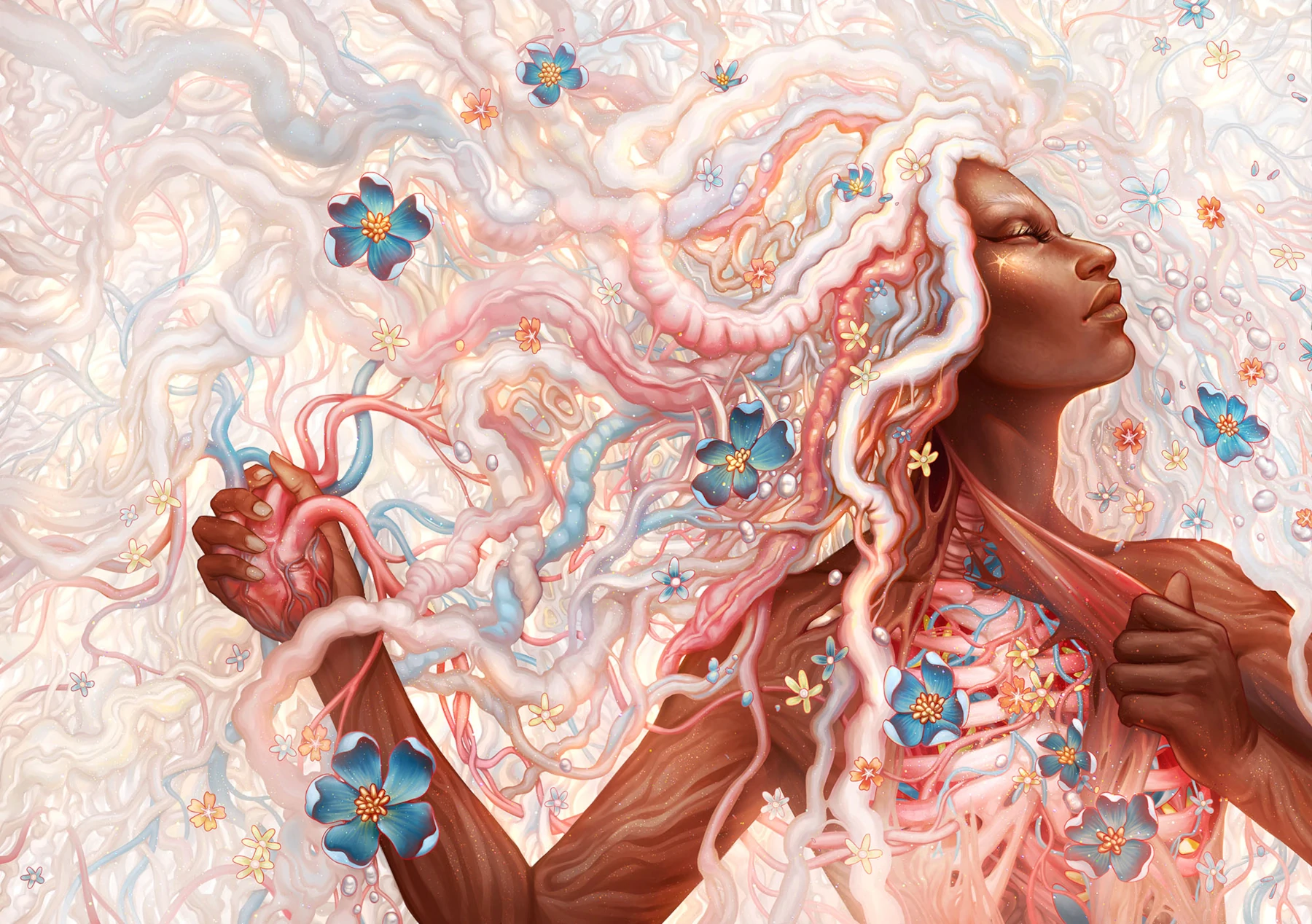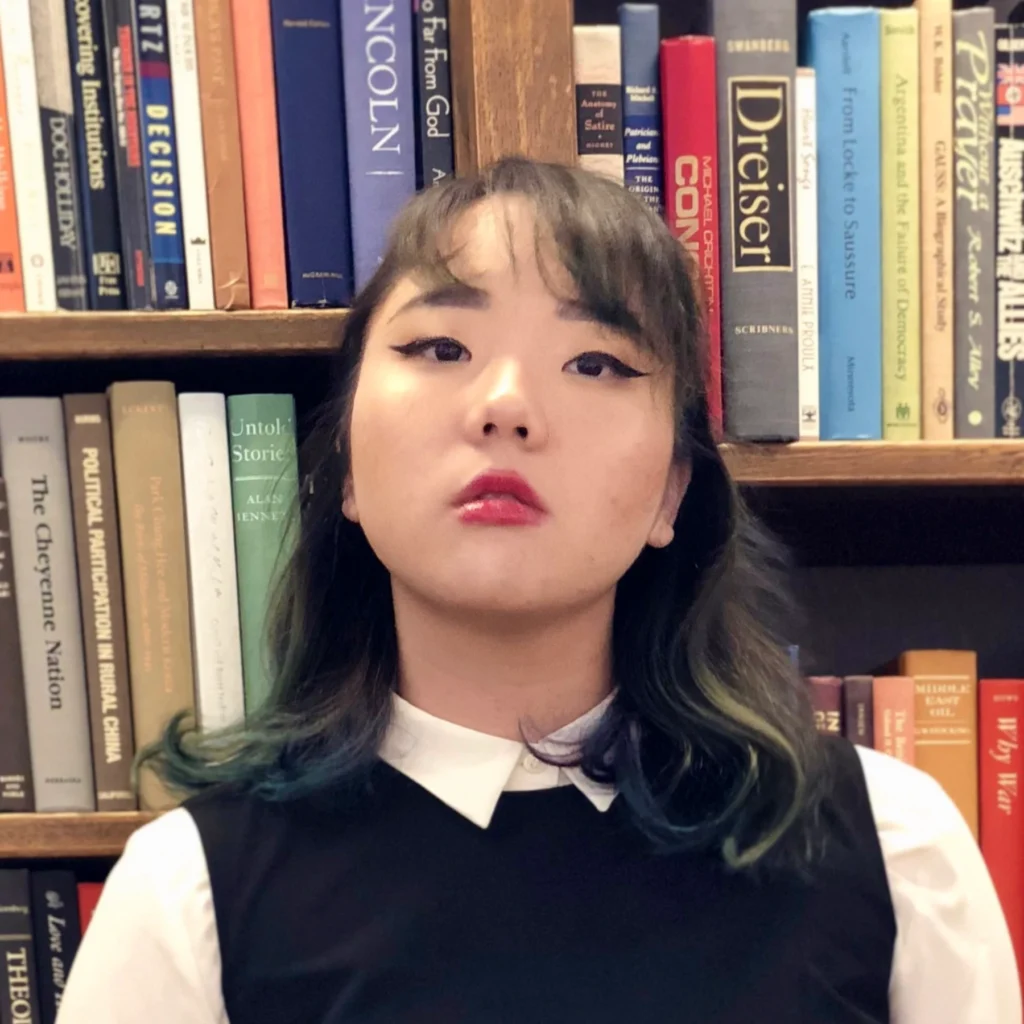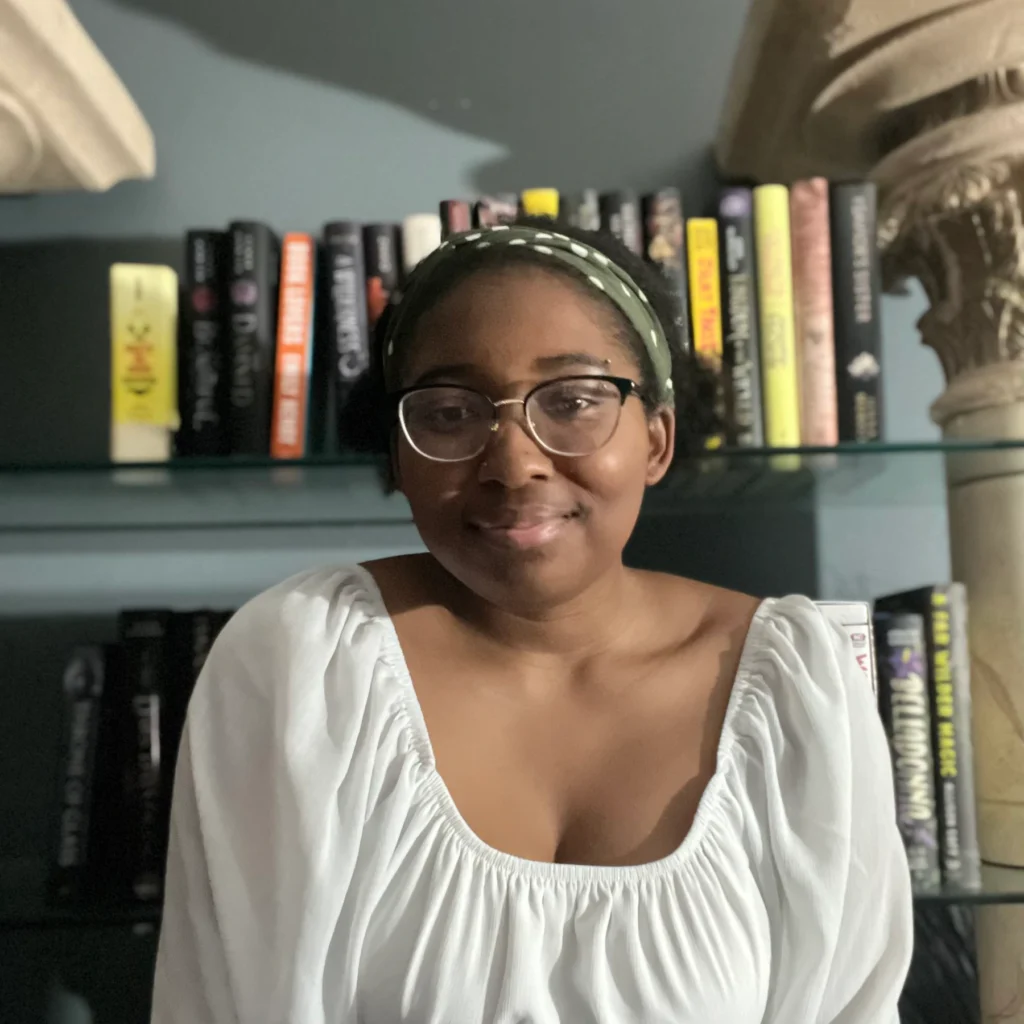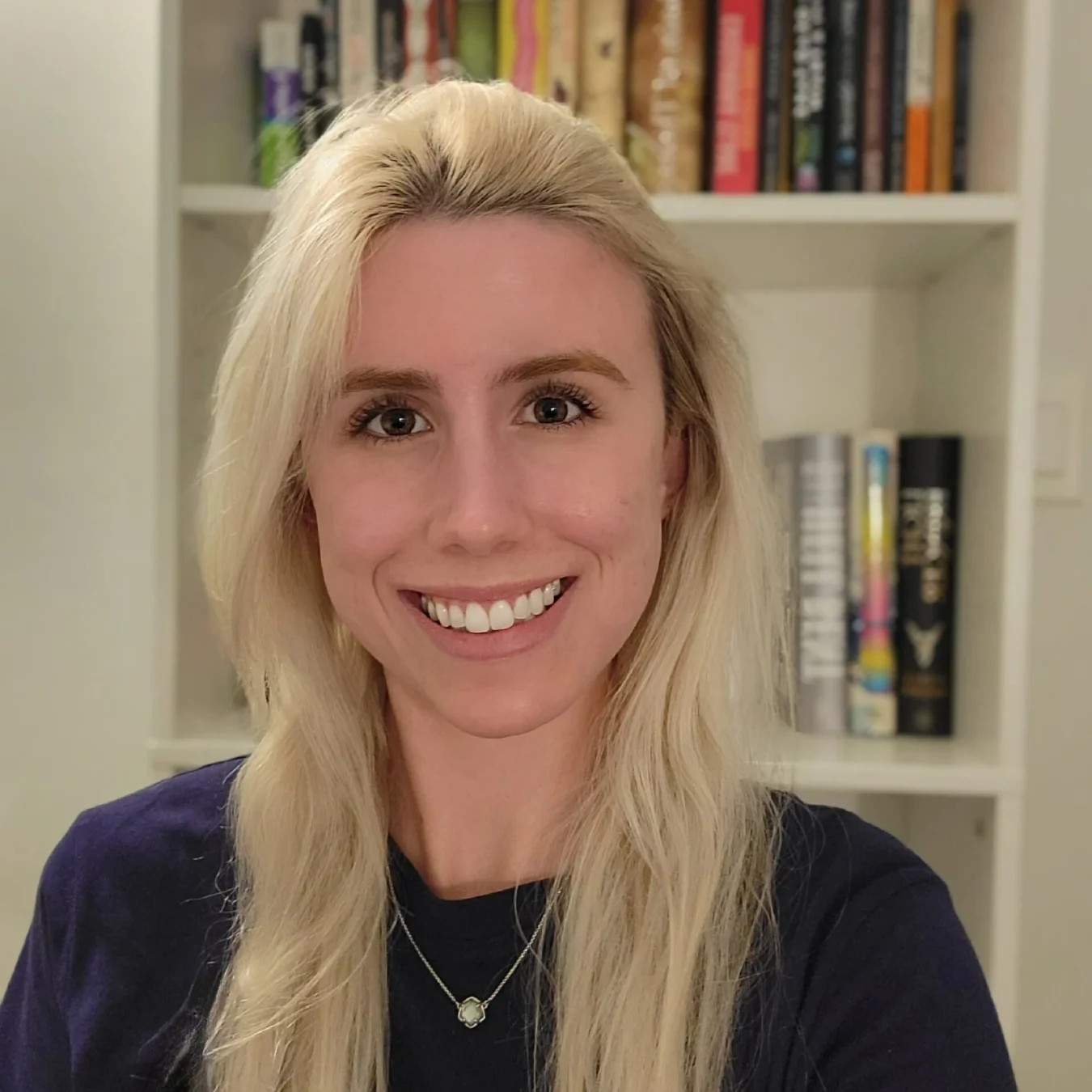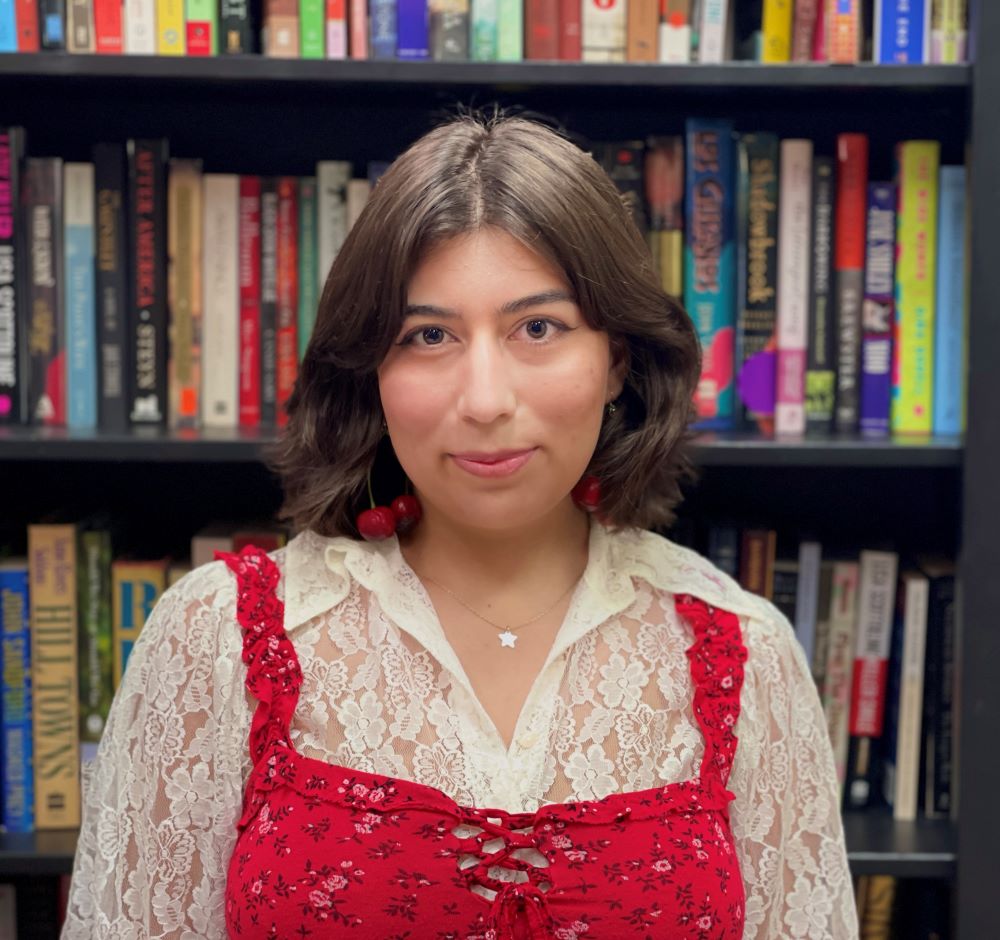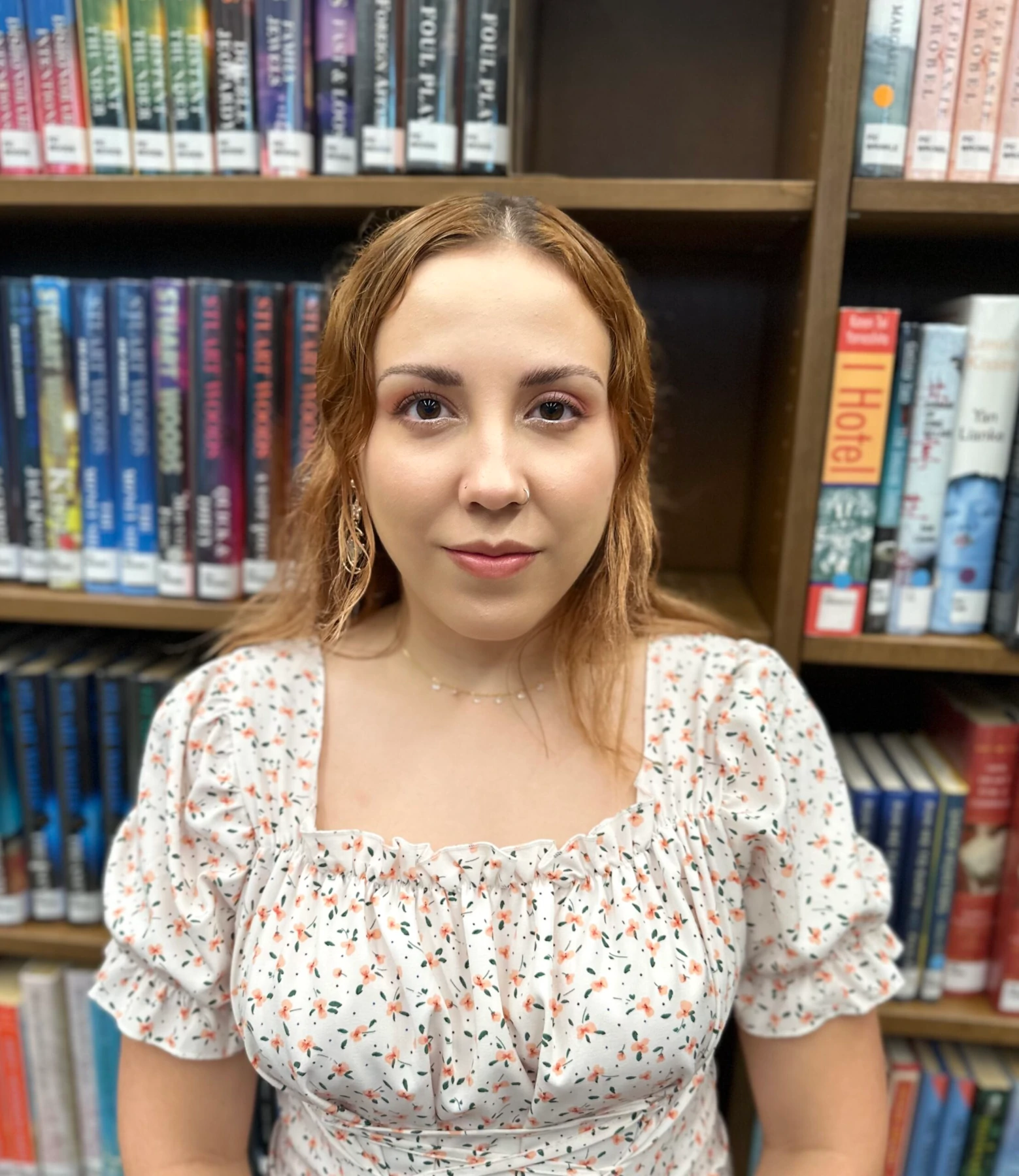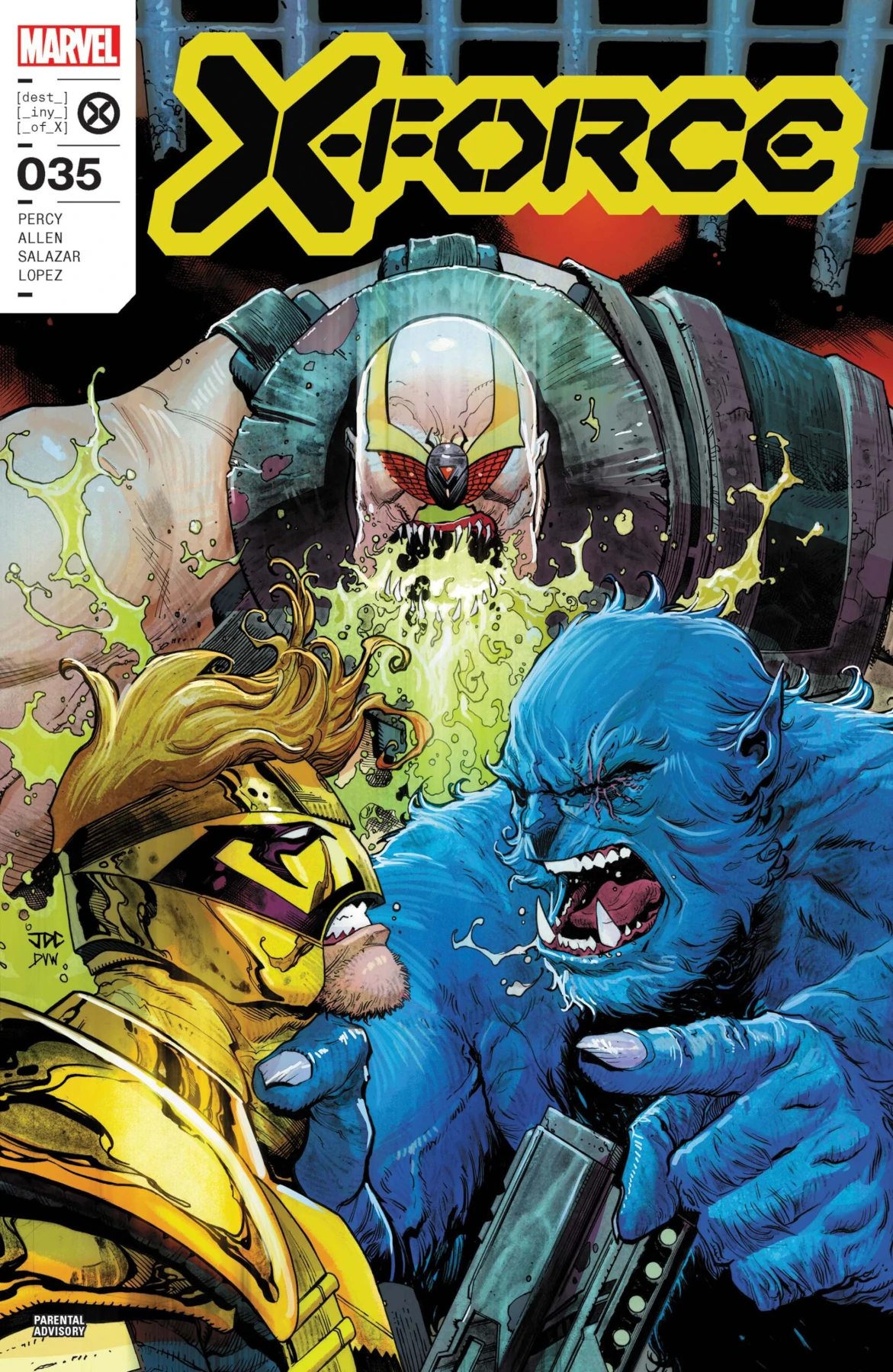If you’ve ever met one of our wonderful F(r)iction staffers, you’ll quickly learn that almost every one of them was once an intern in our Publishing Internship Program.
This program is run by our parent nonprofit organization, Brink Literacy Project. While our publishing internships are a great way to get a crash course in the literary industry, they can often provide a path to what can become a long and rewarding professional relationship. For more information, please visit the internship page on the Brink website.
Aubrey Unemori
she/her
What is your favorite place to read?
In bed, in the middle of the night, when the city is at its quietest.
You’re walking up the side of a mountain along a winding, wooded path. You look to your left and discover, by chance, a door in the side of the mountain. Do you open it, and if so, where does it lead?
Valenda, I hope!
How do you take your coffee? If you don’t drink coffee, describe your favorite beverage ritual.
Latte style! I like my coffee strong, iced, and with soy milk.
What is your favorite English word and why? Do you have a favorite word in another language?
My favorite English word is ‘palimpsest’ —not only fun to say, but also a creative exercise in excavation and meaning. My favorite Japanese word is “atatakakunai” (あたたかくない), which doesn’t mean anything significant, but is a beast to say in conversation!
You’re on a deserted island. You have one album and one book. What are they and why?
I’d bring a Tale for the Time Being by Ruth Ozeki for the meditative and existential island fever vibes. I’d bring the Bloodborne soundtrack for the terror-inducing adventure vibes.
If you could change one thing about the literary industry, what would it be?
Livable wages as the standard for all employees. 🙂
Inanna Carter
What is your favorite place to read?
When I’m feeling outdoorsy (which really isn’t that often) I love reading outside on my porch when the wind breezes just right. If not outside, then happily in the comfort of my own bed.
You’re walking up the side of a mountain along a winding, wooded path. You look to your left and discover, by chance, a door in the side of the mountain. Do you open it, and if so, where does it lead?
The easy, boring answer is that I would 100% not open that door. But if I were to open it, it would lead to the most beautiful library/cafe with more books than I can wrap my head around. And plants. Lots of plants.
How do you take your coffee? If you don’t drink coffee, describe your favorite beverage ritual.
I am unfortunately not a coffee person! But I do love taro boba tea. I used to have a ritual where I’d make some at night (from the kits from Amazon) and just sit back and read. I need to start doing this again for sure.
What is your favorite English word and why? Do you have a favorite word in another language?
I definitely have a favorite English word but of course I can’t think of it right now, so I’ll go with ethereal. My favorite German word is “Handy.” It means mobile phone, and I say it…way too often. “Wo ist mein Handy..? Ah! Es ist da!”
You’re on a deserted island. You have one album and one book. What are they and why?
The book would be my Death By… series by Linda Gerber, a 3-in-1 book. A fun fact is that this is the ONLY book I’ve ever read more than once. It’s my comfort series. The album I would bring would have to be BE by BTS. It’s a short album, but it’s the album with a lot of my comfort songs that I definitely couldn’t live without.
If you could change one thing about the literary industry, what would it be?
I will say 100 times over that the literary industry needs more diversity! Things have been better, but it’s still way too easy to go to an agency’s website, look over their staff, and find little to no POC. I could say a lot more, but I’ll leave it at this: We need to do a lot better.
Montanna Harling
she/her
What is your favorite place to read?
I love to read in corners where the sun spills into the room; being able to glance outside while reading (and also writing) helps me access the imagination more easily and make connections between the stories I’m reading and the world around me.
You’re walking up the side of a mountain along a winding, wooded path. You look to your left and discover, by chance, a door in the side of the mountain. Do you open it, and if so, where does it lead?
I’d be forever preoccupied with imagining increasingly weird rooms that might have been behind that door if I didn’t open it, so I would have to open it. I envision that the door would lead to books (obviously!). More specifically, I imagine that on the other side of the door, there would be a forest that is itself a library—books tucked into the hollows of trees, books held by branches, books shaded by foliage. As someone who loves eco-fiction, being outdoors, and libraries, I would absolutely enter a mysterious doorway to end up in this place.
How do you take your coffee? If you don’t drink coffee, describe your favorite beverage ritual.
My daily coffee usually comes in the form of an iced, flavored latte—I am consistently drawn to sweet drinks. Sugar fuels my writing.
What is your favorite English word and why? Do you have a favorite word in another language?
My favorite word is the same both in English and Latin. I love the word “inspire” because I think the etymology adds such beautiful meaning to the word. It’s derived from “inspīrāre” in Latin, which means “to breathe into,” often with the suggestion of breathing life into something. Viewing the relatively common word “inspire” in these terms—of giving life to something, of inspiration itself being the act of breathing that which inspires you—is very fascinating to me.
You’re on a deserted island. You have one album and one book. What are they and why?
Album—Taylor Swift’s Folklore. I return to this album not only because the imagery is complex and rich, but because each song is crafted in a way that tells a story.
Book—Ninth House by Leigh Bardugo. This book’s combination of fantasy, academia, and Bardugo’s beautiful prose has made it one of my all-time favorites.
If you could change one thing about the literary industry, what would it be?
I would change the regionally centralized nature of the US publishing industry; as someone who grew up in a rural region and lived most of my life in California, it was difficult to come to terms with the reality that I might have to move to New York in order for my literary career to get started or succeed. I hope that access to publishing and writing communities can spread beyond New York, and that these opportunities can be available across a wider geographic region both in-person and virtually.
Sara Santistevan
What is your favorite place to read?
My dream home has a cozy reading nook overlooking a body of water. Until then, my favorite places to read are in my bed, in tiny cafes, and by the ocean, where the steady crash of waves can lull me into a trance.
You’re walking up the side of a mountain along a winding, wooded path. You look to your left and discover, by chance, a door in the side of the mountain. Do you open it, and if so, where does it lead?
The wooden door inside the mountain is weathered, bordered by moss and ivy. When I open the door, I’m met with complete darkness. Curiosity gnaws at my guts, so of course, I go inside and fall down, Alice-in-Wonderland-style. I’ve never fallen from such a height, but I can only imagine light spilling from the door far above, tauntingly, as I free fall.
Right as stars cloud my vision, I land on a conveniently plush daybed. The space I find myself in is circular. Each wall is seamlessly lined with massive bookshelves, made of deep brown oak and smelling of soil that reminisces a recent rain. A warm tugging at my chest pulls me toward a book with a shimmering aquamarine cover. The blurb on the back informs me it tells the story of a girl who spends her days swimming and fishing in an ancient ocean. I open the book. A handwritten note nearly flutters out; it reads: This library holds all the stories of your life and all the tales of your previous lives. Your soul story spans continents and worlds. You may stay as long as you like. Once you are satisfied, a door will open, and you will be free to return to the world outside.
I bring the book to the couch and begin to read.
How do you take your coffee? If you don’t drink coffee, describe your favorite beverage ritual.
I could talk about this for ages, but I’ll try to keep it short and sweet…like my favorite coffees!
I grew up drinking coffee from a young age. I loved to join my grandparents and mom as they drank coffee in the early evenings and told hilarious family anecdotes. So, I still have a soft spot for a simple shot of espresso in the morning, sometimes with half and half. If I have more time, I’ll add some espumita (a foamy blend of sugar and the most concentrated drips of espresso).
When I go out for coffee, I’m a sucker for the fun, sugary drinks, like lavender and pumpkin spice lattes.
What is your favorite English word and why? Do you have a favorite word in another language?
Lately, I’ve been loving the word “alchemy.” Not only do I enjoy the mouthfeel, but I’m also fascinated by the idea of transformation and creativity as an ancient magic of the universe. I imagine this word as a piece of gold that glimmers iridescent in the moonlight.
I also love many words in Spanish, but one of my favorite ones is “estrella” (meaning “star”), which rolls off the tongue beautifully. If “alchemy” is iridescent gold, “estrella” is sprawling peals of silver.
You’re on a deserted island. You have one album and one book. What are they and why?
After much deliberation, I’d have to say my album of choice in this hypothetical would be the 25th anniversary edition of Buena Vista Social Club’s eponymous record. It has songs for aimless strolling, dancing, lounging in the sun, and reminiscing. Warm instrumentals serve as the throughline on the album, which might make me feel a little more at home on an island. Plus, I’m learning Spanish in an effort to connect to my heritage, and I’m sure listening to this album on repeat would help!
My go-to book would have to be Samanta Schweblin’s short story collection, Mouthful of Birds. Schweblin ingenuously uses uncanny details in her writing to explore social issues in her home country of Argentina. Each story is so shocking that I could read this collection one hundred times and come away with a new insight every single time.
If you could change one thing about the literary industry, what would it be?
Although the industry has made great strides toward inclusivity, I still think work needs to be done to make entering the industry more accessible for all. I believe that if publishers actively create opportunities for underrepresented individuals to share their stories, more people will be excited to engage with new literary works. It’s especially important for diversity to be reflected in new books so children and young adults can develop confidence and a strong sense of self by identifying with characters who positively represent their communities.
Zara Garcia
she/her
What is your favorite place to read?
My favorite place to read is on my aqua blue sofa surrounded by an army of Squishmallows.
You’re walking up the side of a mountain along a winding, wooded path. You look to your left and discover, by chance, a door in the side of the mountain. Do you open it, and if so, where does it lead?
I open it cautiously. It leads to a wooded meadow with plush green grass and wildflowers. There are birds of every kind speckled through the trees and grazing in the grass. In the middle of the meadow there is a picnic blanket laid out with luscious fruit. I am reunited there with my beloved parakeet named Bird who is standing on a banana.
How do you take your coffee? If you don’t drink coffee, describe your favorite beverage ritual.
I must admit that while I’m no coffee connoisseur, I’m very picky and will only drink coffee that I prepare myself. I follow the directions on the back of the instant coffee jar exactly: 6 oz. of hot water with 1 tsp of coffee. Then I fill my mug to the brim with almond milk creamer.
What is your favorite English word and why? Do you have a favorite word in another language?
My favorite word in English is azure because it sounds cool, it’s a beautiful color, and it works nicely as an adjective, especially in poetry. I also think it’s a lovely gender-neutral name.
My favorite word in Spanish is arrullo (pronounced “ah-rroo-yoh”). It can mean cooing, lullaby, or murmur. One of my favorite songs in Spanish is “Arrullo de Estrellas” by Zoé, which translates to “Lullaby of Stars.”
You’re on a deserted island. You have one album and one book. What are they and why?
I think if I were on a deserted island, I would just accept my demise. I have no survival skills. The album would have to be Depression Cherry by Beach House. I think I could die peacefully listening to the dreamy melodies and haunting voice of Victoria Legrand. Every song on the album makes me feel as though I am a drifting cluster of cells in the vast universe, and I find that feeling comforting.
The book would have to be One Hundred Years of Solitude by Gabriel García Márquez because reading it is such an immersive experience. It makes you feel as though you are living through several generations, witnessing the rise and fall of life itself, and it’s simply a masterpiece on the human condition. I discover new details to dissect every time I read it, and I don’t think it could ever get boring.
If you could change one thing about the literary industry, what would it be?
A more mission-driven, inclusive approach when it comes to the writers and stories that get published. It is so disheartening to see books that represent marginalized identities being banned from schools. The literary industry can and should push back by amplifying as many underrepresented voices as possible and advocating for them harder. I think that the industry has a responsibility to help move along the evolution of the literary canon by prioritizing diversity in the stories they put out into the world and in the hands of future generations.
